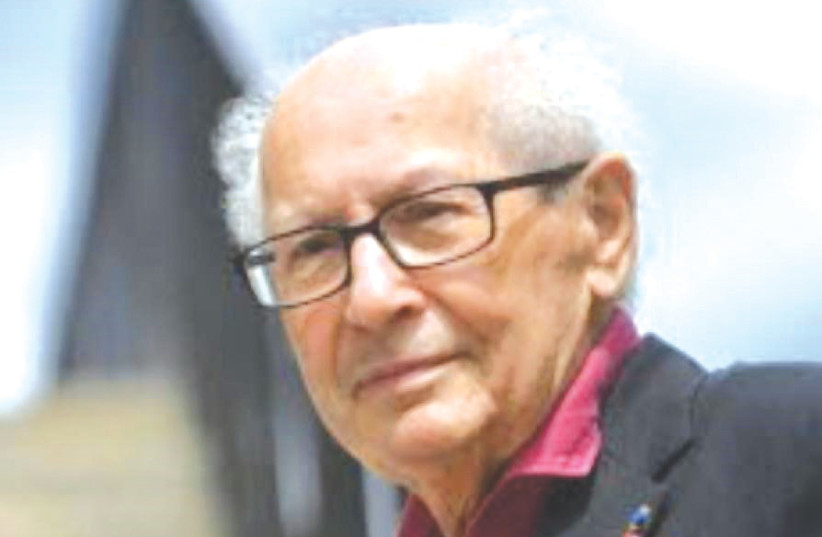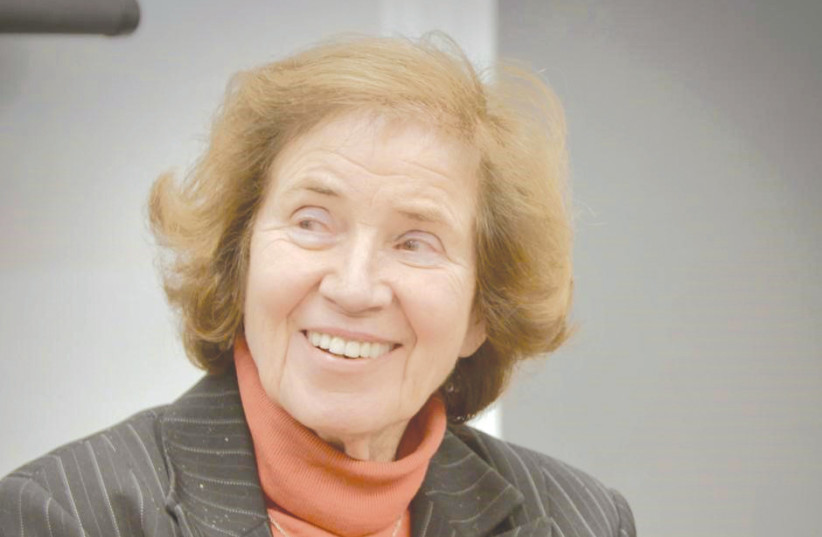The famous husband-and-wife Nazi hunting duo, Beate and Serge Klarsfeld, who will be the guests of honor at the 24th Jerusalem Jewish Film Festival, still have important work to do. They will talk about this work at a screening of a new documentary about them at the Jerusalem Cinematheque on December 19 at 8:00 p.m. The film festival opens on December 17 and runs until December 22.
The documentary, Klarsfeld: A love story by Mike Lerner and Martin Herring, which will also be aired on the Yes Docu Channel, looks at their extraordinary careers and presents a touching, personal portrait of their partnership. It also focuses on their primary concern, the future.
What is their story?
The Klarsfelds, who married nearly 60 years ago, have made headlines for decades for their relentless pursuit of Nazis, many of whom were brought to justice due to their dogged work. Serge, 87, was born in Romania and moved to France as a child, where his father sacrificed his own life in 1943, by allowing the SS to arrest him so that his wife and children could survive in their hiding place. This formative experience, coupled with his love and admiration for his father, fueled his ambition never to forget the Holocaust – and to fight for justice.
Beate, 83, is a non-Jewish German who was so outraged when she learned about the Holocaust, that she chose to spend her entire life battling to put Nazis behind bars. The couple have two children, one of whom, Arno, is also a human-rights activist and lawyer.

As the film details, among their most celebrated victories was the arrest and conviction of Klaus Barbie, the head of the Gestapo in Lyon, France during World War II. Barbie, also known as the Butcher of Lyon, was tracked down by the Klarsfelds in Latin America.
In addition to hunting down high-ranking Nazis all over the world, the Klarsfelds also protested against the appointments of former Nazis to government posts in Germany. Beate went to jail for slapping German Chancellor, Kurt Georg Kiesinger, at a political convention and calling him a Nazi in 1968. This was just one of the many times she or Serge (or both) were arrested.
“Obviously, I try always to explain and just speak to young people. I say, ‘You didn’t know the war, what it is. I know the danger, I was born in 1935.’ The work we are doing now is against the extreme right, we are now very scared that in France, the right-wing party in the next elections can win.”
Serge Klarsfeld
IN RECENT years, as neo-Nazism has, once again, reared its ugly head throughout Europe, the Klarsfelds have been working to educate young people about the dangers of right-wing extremism, fascism and antisemitism. Based in Paris, they keep a dizzying schedule of speaking engagements and public appearances. But in spite of occasional moments of fatigue – at one point in the film, Serge admits to being in pain as they walk to a restaurant where they have been invited to speak – they are fueled on their mission by a kind of youthful energy and conviction that is inspiring to behold.
Speaking by telephone from their home in Paris earlier this week, Serge said: “Obviously, I try always to explain and just speak to young people. I say, ‘You didn’t know the war, what it is. I know the danger, I was born in 1935.’ The work we are doing now is against the extreme right, we are now very scared that in France, the right-wing party in the next elections can win.”
He also expressed concern about the recent arrests in Germany of a right-wing group planning to overthrow the government.
Beate said they were looking forward to watching the new documentary with an audience in Jerusalem because she feels a sense of solidarity with Israel. “As a German, I think it was my duty to work for the security of Israel and against antisemitism,” she said.

What does the film show?
The film shows how they have worked tirelessly to ensure that the Holocaust is never forgotten. Part of this work includes the promotion of the work of Polish-born French painter, David Olère. He was the only artist to have survived the Holocaust as a member of the Jewish Sonderkommando (groups of Jewish prisoners forced to perform a variety of duties in the gas chambers and crematoria) at Auschwitz, which he documented in haunting paintings. Exhibits of his work are prominent in the film.
Asked how they managed to track down so many Nazis, even though they did not have formal training in intelligence or espionage, Beate said that many were living quite openly, in spite of their pasts, and that the problem was not in locating them, but in getting them prosecuted. “It’s the German justice,” she said.
Although some husbands and wives don’t get on very well when they try to work together, Beate said that for them, this was never a problem. “We were able to do our work because we had a very happy family life, with two wonderful children and always surrounded by animals. That gave us the strength we needed to continue our fight outside the house,” she explained.
Their lives were threatened on many occasions. In 1979 their car was bombed, although no one was in it at the time. “It was kind of a miracle,” Beate said, “but for 20 years, no one has threatened us.”
Although their own lives are no longer in danger, Serge emphasized: “It’s very dangerous today, you know, so we have to get young people engaged immediately. It’s a good life for the Europeans now, but we have to stay aware that this can change and the right-wing parties can take over.”
For more information on the festival: https://jer-cin.org.il/en/61292
